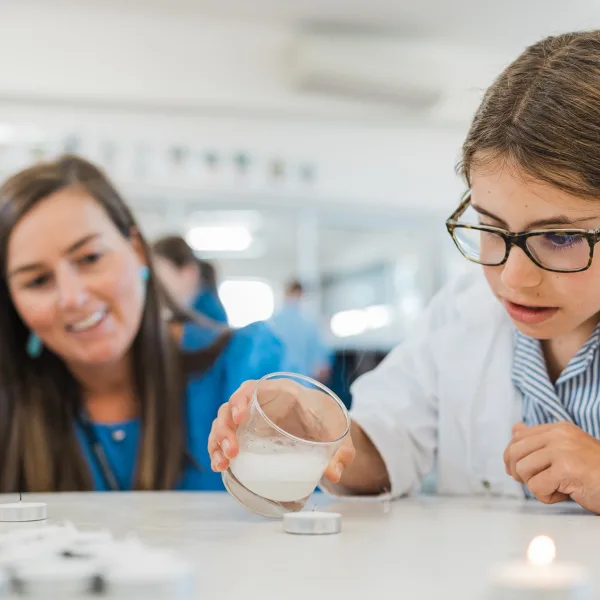
Prev post
Joining Launceston Grammar with a deep passion for faith, community, and youth, Reverend Alastair Crouch brings a unique journey and heartfelt commitment to supporting students on their spiritual and personal paths. From his early experiences in Anglican education to his diverse professional background and rich ministry across Tasmania, Revd. Crouch embraces the role of chaplain as an opportunity to walk alongside young people, helping them explore life’s big questions with curiosity, joy, and respect. In this conversation, Revd. Crouch shares insights about his family, his approach to chaplaincy, and what it means to nurture wellbeing and character in a diverse school community.
Q. Can you tell us about your family, where you’ve come from, and what brought you to Tasmania?
A. I’m married to Kristy, we’ve been together for 15 years and we have three children: Elizabeth, who was born sleeping, and our two boys, Reuben and Alexander.
Growing up, I attended an Anglican school similar to Grammar in Brisbane, where I first saw the impact a chaplain could have. After school, I trained as a chemical engineer and worked for five years in an alumina refinery in Western Australia. Over time, I realised what I enjoyed most wasn’t the technical work, but equipping people with the knowledge to underpin their experience.
During my first year of theology studies, I went on a mission trip to Inverell, NSW, where a local vicar encouraged me to consider ministry in Tasmania. Until then, Tassie wasn’t on my radar, but from that moment, doors kept opening. I reached out to Bishop Richard Condie, which led to a role as assistant minister at Burnie Anglican Church. After two years, I became Rector of the Parish of Wynyard. We’ve loved being part of the Tasmanian community.
Q. In what ways do you think a school chaplain can make a meaningful difference in students’ lives?
A. I believe spirituality is a core part of being human. School provides a unique opportunity for students to explore big questions about faith, purpose and identity, and that’s where a chaplain can make a real impact.
Having experienced firsthand how a chaplain can support young people, I see the role as walking alongside students as they wrestle with who they are, who they want to become, and what they believe. We all have faith – the question is where we place it and how we live that with conviction.
While I personally believe following Jesus is the best and truest way to live, I respect that not everyone will share that view. What I appreciate about Grammar is its inclusive approach to spirituality: ‘all faiths or none.’ That, to me, reflects the heart of Christian education.
Q. If you had to describe your approach to chaplaincy in three words, what would they be?
A. Fun, Curious, Engaging. Fun – I believe following God is joyful, and chaplaincy should reflect that. Faith isn’t meant to be dull, it should spark life, laughter, and connection. Curious – While I believe Jesus is the Way, I don’t need to speak for Him. I want to listen, learn, and understand where others are coming from. Curiosity allows me to meet people as they are, not as problems to fix but as people to know and love.
Engaging – I aim to go deeper than surface-level answers. Christianity should challenge and inspire us, and I see that challenge as an invitation to think, to grow, and to engage honestly with life and faith.
Q. How do you approach supporting students of different faiths - or none at all?
A. I think everyone believes in something, whether in God, reason, nature, or something else. As author David Foster Wallace put it, “We all worship something.” What we choose to worship can either weigh us down or give us life. My hope is that every student takes time to reflect deeply on what they believe and why, and how they can live that out with integrity and conviction.
Q. What’s one thing people might be surprised to learn about you?
A. I’ve lived in every state and territory of Australia. It’s given me a real appreciation for the diversity of communities across the country. It’s also helped shape my perspective on people, place, and what it means to feel at home.